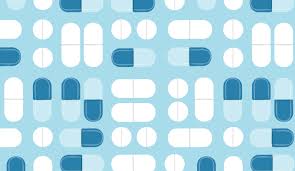Source: pharmanewsintel.com
February 24, 2020 – With the prevalence of antibiotic resistance rapidly rising, a new study published in Cell is offering a more efficient, cost-efficient strategy for antibiotic discovery using machine learning.
There is an innate need to discover new antibiotics due to the emergence of antibiotic-resistant bacteria. And antibiotics have become the cornerstone of modern medicine since the discovery of penicillin.
In the past, antibiotics were discovered through screening soil-swelling microbes for secondary metabolites that prevented the growth of pathogenic bacteria, the study stated. But lately, the discovery of antibiotics has proved difficult.
“Natural product discovery is now plagued by the dereplication problem, wherein the same molecules are being repeatedly discovered,” researchers said in the study.
Many antibiotic discovery programs have looked to screening large synthetic chemical libraries. But the challenge lies in high cost due to the thousands to millions of molecules it contains.
Machine learning offers to enhance the antibiotic discovery process, researchers found using its own model to predict antibacterial compounds in silico from a collection of >107 million compounds..
“[T]he development of new approaches that can substantially decrease the cost and increase the rate of antibiotic discovery is essential to reinfuse the pipeline with a steady stream of candidates that show promise as next-generation therapeutics,” they wrote in the study. “The adoption of machine learning approaches is ideally suited to address these hurdles.”
Researchers intended to find how the combination of computerized predictions and empirical investigations can further the discovery of new antibiotics. They also looked to obtain a training dataset that was inexpensive and chemically diverse to allow for the development of a robust model for antibiotic discovery.
First, using a collection of 2,335 molecules, researchers trained a deep neutral network model to predict growth inhibition of Escherichia coli. Then they identified potential lead compounds with activity against E. Coli.
The resulting model was used to predict antibacterial compounds. It performed well with a 51.5 percent accuracy rate. The model approach was capable of generalization and permitted access to new antibiotic chemistry.
Using machine learning for antibiotic discovery can help process years of data to make informed decisions about the development of various medications, researchers confirmed with this study.
“Given recent advancements in machine learning, the field is now ripe for the application of algorithmic solutions for molecular property prediction to identify novel structural classes of antibiotics,” researchers explained.
Previously, machine learning has lacked accuracy and been insufficient to substantially change traditional drug discovery. But with recent algorithmic advances, there is an opening to influence the drug discovery system.
Traditionally, molecules were represented by their fingertip vectors which showed the presence or absence of functional groups in the molecule, the study highlighted. These neural network vectors had the ability to learn the representation automatically.
While neural network models narrowed the performance gap between analytical and experimental approaches, there is some disparity.
“It is important to emphasize that machine learning is imperfect,” researchers highlighted. There are many elements that must be taken into consideration when applying machine learning including the design for training, the composition of the training data itself, and the predication prioritization.
“Overall, our results suggest that the time is ripe for the application of modern machine learning approaches for antibiotic discovery. Deep learning could therefore enable us to expand our antibiotic arsenal and help outpace the dissemination of resistance,” researchers concluded.
